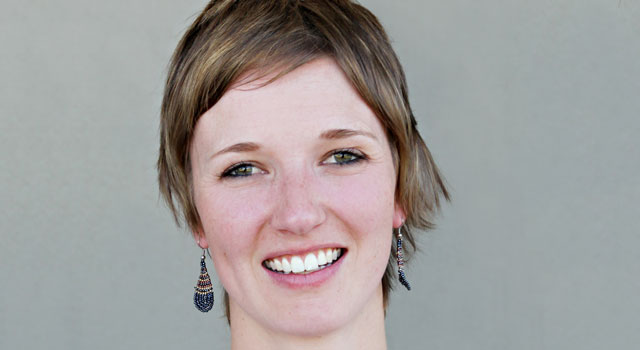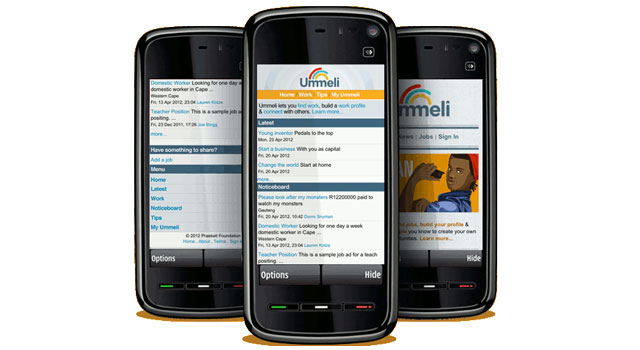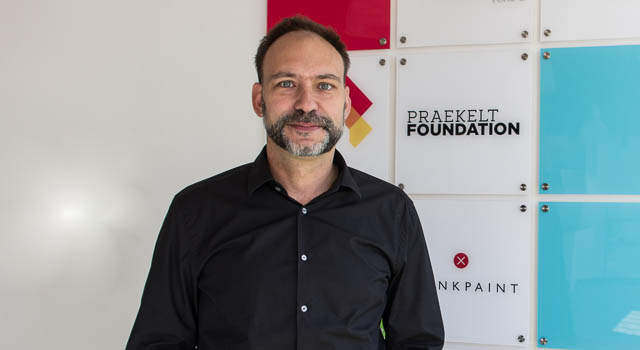
New service Ummeli is a more than just a free mobile job board for those who might not otherwise have access to such things, says project manager Lauren Kotzé. It’s also a resource for staffing nongovernmental organisations and a platform for young South Africans to share ideas and employment opportunities.
“Ummeli stems from the very obvious needs in South Africa of unemployed youth,” says Kotzé. “It’s aimed at people between the ages of 18 and 35, with the major target market being somewhere in the middle of that.”
Kotzé says there are lots of “job boards” and “opportunity sites” for people with medium- to high-level skills and regular computer access, but for youngsters who don’t have desktop Internet access, or who have limited experience — for example, no matric or tertiary education — they struggle because there’s very little available to them.
That’s precisely the market Ummeli is trying to cater to. And with more than 185 000 South African users of the service already, despite its only having been launched in November 2011, there’s clearly demand.
“We look at users’ needs quite holistically,” Kotzé says. “You can’t just have a job board, as many users don’t have a matric or any experience, so a lot of them need more help than that.”
Ummeli provides information on bursaries for further study, short-term “field courses” and government programmes. For example, Kotzé says government will provide free training for people to get drivers’ licences, something few people know about but which can make a big difference in the life of an unemployed youngster.
“We’ve gone to provincial government and asked about things like that so that we can add that information to Ummeli,” she says.

In addition to information on bursaries and internships, the service is also used to advertise volunteering positions which can prove invaluable for gaining work experience.
With the service due to be overhauled by mid-September, users can expect a new section called “tasks”, which Kotzé says are based on a community crowdsourcing model.
“We find organisations that can break things up into smaller tasks, like verifying a point of interest for a mapping company by taking a picture of it, or completing a survey on your mobile phone. Users can earn airtime for these sorts of things, but we’re looking at making it possible to pay them cash in future using a mobile payments gateway like M-Pesa.”
Kotzé says Ummeli was built with a handful of key principles in mind. The first was that it had to be mobile, and it had to support feature phones, because that’s a technology almost everyone has access to already. It also had to be free, or as near to free as possible. For now, the service is entirely free and is fully funded by the Praekelt Foundation, the organisation headed by technology entrepreneur and philanthropist Gustav Praekelt.
Ummeli also has a partnership with Vodacom that makes it free to all of the operator’s customers. Kotzé says Ummeli is lobbying other operators to get its .mobi site zero-rated for data.
Kotzé says the company has also been trying to secure sponsorship from government and hopes to become a sustainable platform eventually by building a website where “opportunity providers” can create profiles and post their ads directly.
“That will be free, but they can offer premium features, like the ability to bump jobs to the top of the list or be featured as the organisation of the day,” Kotzé says. “We’re also looking at advertising, but that one is scary. It would have to be subtle.”

Ummeli is currently only offered in English, but Kotzé says much of the communication between users is done in vernacular languages. She says English is the one language users don’t get “touchy” about, but that when they suggest a new feature and ask for input on proposed names, there’s always conflict if the suggestions are in a particular African language.
Ummeli works on any handset that supports Wap, meaning just about every feature phone. In the next three months, the company plans to extend the service to USSD so that any handset, even those that are only GPRS-enabled, will be able to use it.
There are also plans to expand to Nigeria and Kenya. Kotzé says these are the countries being looked at first because the Praekelt Foundation has projects under way there. “You can’t just replicate the service and take it live in another country,” Kotzé says. “It needs to be very specific and tailored to the market.” — (c) 2013 NewsCentral Media




